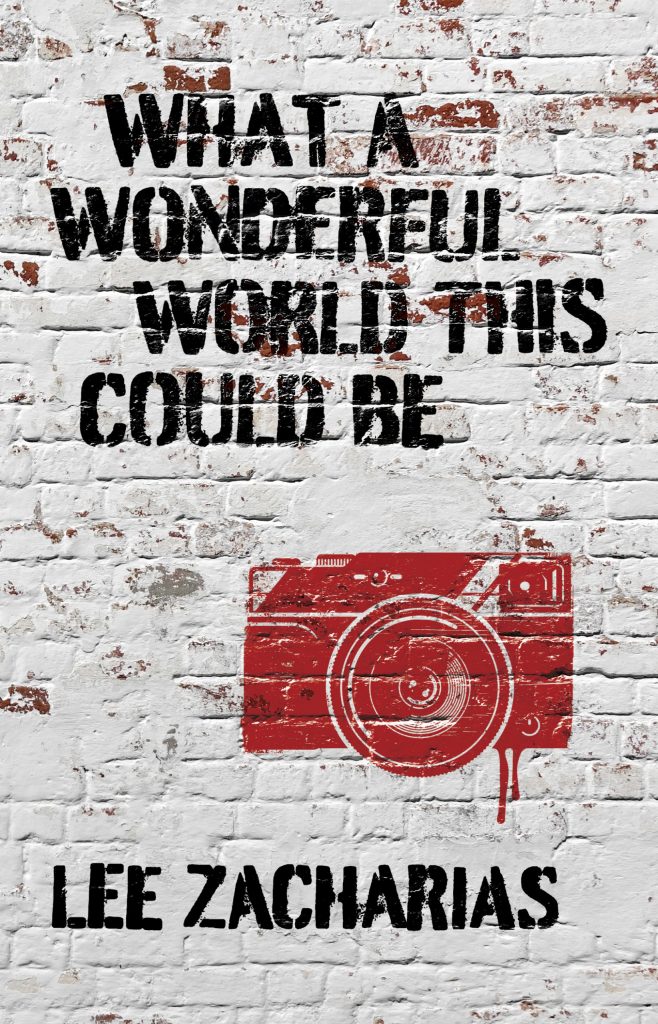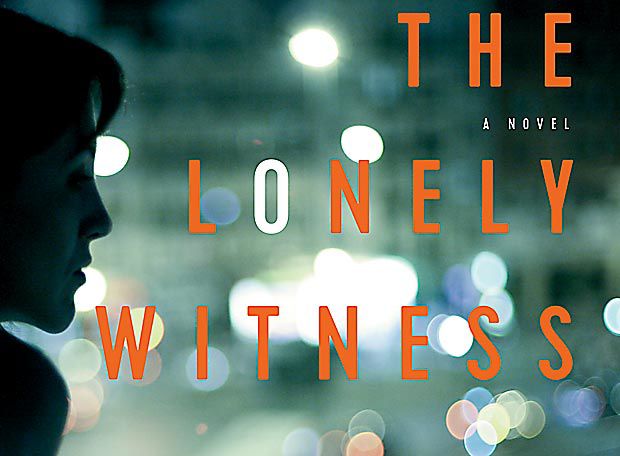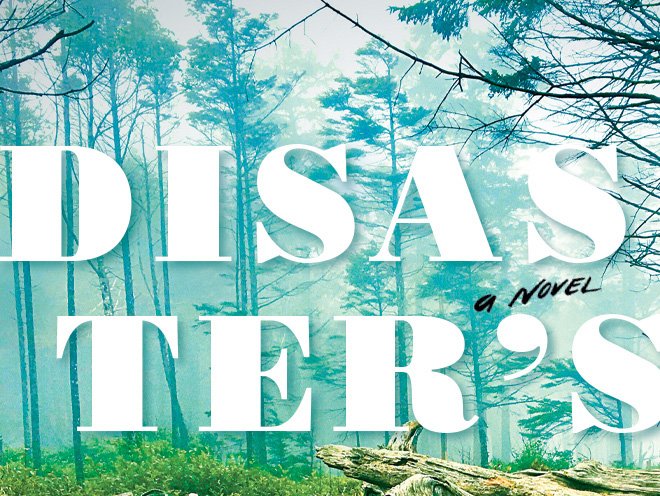
Welcome to another installment of If My Book, the Monkeybicycle feature in which authors shed light on their recently released books by comparing them to weird things. This week Lee Zacharias writes about her new novel, What a Wonderful World This Could Be, out now from Madville Publishing.

If What a Wonderful World This Could Be were a shadow, it would belong to a photographer who peers through his lens with shoulders slightly hunched. The shadow would appear to be solid, though it is nothing but a dark shape stretching across the grass toward a subject it doesn’t quite reach. The subject seems quite small compared to the shadow, but only because she stands far away. The photographer hasn’t come close enough to remove himself from the picture, though you cannot see his face, only the silhouette distorted by the low angle of the sun falling across his shoulder, legs firmly planted and impossibly wide at the bottom, tapering toward a narrow body and small head. All we know of him is the contour the sun cuts from its own light in a moment of time that is forever preserved, although already the moment itself is gone.
If my book were a photograph it would be that photograph, the one that foregrounds the faceless photographer and only half shows the subject, who is turning away, as if she is not sure she wants to be in his picture. But she is, the photograph is made, and now it must wait in a dark room before blooming on a sheet of white paper as it swims through the trays that hold the developer and stop bath. It will float, shimmer, and shift before it can be fixed and rinsed, because this is a photograph made on film, a negative before it becomes a positive, the shadow a pale shape on dark grass before they reverse and the photograph becomes a print. But it will have that spurt of growth before it can be dried and flattened, before it is matted and framed beneath a sheath of glass. If my book were a photograph, it would be made before the days of camera phones, selfie sticks, and instant gratification. It would be black and white, because a shadow doesn’t want color, and the shadow’s photograph needs to be mysterious and moody. We don’t know if the short dress the subject wears is green or blue, that girl who is half turned away because she is not yet sure what she wants.
And if my book were that photograph it would not be tossed into a box or filed away in an album. It would hang upon a wall, though it would not like the wall. It would not like the tightness of the frame or the way the corners of the matt prickle and itch, it would struggle for air behind the glass in that climate-controlled room where a guard warns anyone who looks not to come too close, not to touch. My photograph would wait until near closing hour, when the rooms begin to empty out, and then, when the guard is checking his watch and remembering where he left the keys to his car, when no one is looking, it will jump off the wall, damaging the fame and breaking the glass. It will peel off the matte and search for an exit through a labyrinth of museum halls, and just outside, as the heavy door swings shut behind, it will stop running, it will take a deep long breath, and then, when it is ready, it will slow its step to walk down a set of wide marble stairs to a lawn where shadows are just beginning to lengthen in the warm glow of an early summer evening’s golden light, and for a moment she will pause, just long enough to see that the only shadow falling in front of her is hers.
LEE ZACHARIAS is the author of four novels, a collection of essays, and a collection of short stories. She has held fellowships from the National Endowment for the Arts and the North Carolina Arts Council, has twice won the North Carolina Sir Walter Raleigh Award for a book of fiction, and has received many other prizes, including two silver medals from the Independent Publisher Book Awards and the Phillip H. McMath Book Award. Her previous novel Across the Great Lake was named a 2019 Notable Michigan Book, and her essays, which have appeared in numerous journals, have been cited and reprinted in The Best American Essays. She co-edited an anthology of short fiction titled Runaway and has taught at Princeton University and the University of North Carolina Greensboro, where she is Emerita Professor of English. A native of the Midwest, she lives in Greensboro, North Carolina. Learn more at leezacharias.com and follow her on Twitter at @LeeZacharias.



